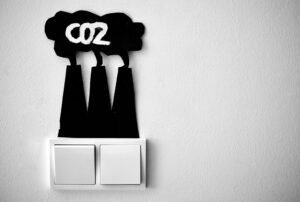
December 1, 2016; Washington Post
Charles Krauthammer’s weekly political column at Washington Post last Friday asserted, “After a mere 25 years, the triumph of the West is over.” This might sound hyperbolic had Krauthammer not received the Pulitzer Prize for his commentary at the Post, which is syndicated to more than 400 publications worldwide.
Krauthammer claims that the Soviet Union’s collapse in December 1991 “marked the ultimate triumph of the liberal democratic idea. It promised an era of Western dominance led by a preeminent America, the world’s last remaining superpower.” But he concludes that after a decade of liberal democracy taking hold in Eastern Europe and elsewhere, autocracies are competing with democracy and “the U.S. is in retreat.”
Krauthammer cites the annihilation of Aleppo as an example of America’s impotence. Krauthammer sees Russia, China, Iran and other authoritarian governments challenging the post-Cold War order. Krauthammer describes Trump as welcoming this retreat because, in contrast to Obama’s conviction that the U.S. had not “earned the moral right to be the world hegemon,” Trump believes that “the world is not good enough for us.” Krauthammer concludes that, “We may choose repose, but we won’t get it.”
As racial hatred and bloody conflicts convulse the world where liberal democracy was expected to win the day, where does that leave civil society? According to Freedom House, only 13 percent of the world’s population enjoys a free press. Does the recent election demand a fresh interrogation of what we mean by civil society, at least in the U.S.? Are we confident that the ideals and assumptions by which we each establish our organizational mission statements will win the day or will they need to be revised by this time next year? America long ago prided itself on its multicultural and inclusive identity. What did President-elect Trump mean when he promised to “make America great again?”
Sign up for our free newsletters
Subscribe to NPQ's newsletters to have our top stories delivered directly to your inbox.
By signing up, you agree to our privacy policy and terms of use, and to receive messages from NPQ and our partners.
The white nationalist Richard B. Spencer was joined by more than 200 adherents a few blocks from the White House shortly before Thanksgiving at a rally punctuated by Nazi salutes and shouts of “Hail Trump!” Mr. Trump disavowed these alt-righters’ excesses, but the question remains whether his administration’s policies will align with white nationalist interests, such as mass deportation and a ban on Muslim immigration.
In her warning that “Now is the time to resist the slightest extension in the boundaries of what is right and just,” the critically acclaimed author from Nigeria, Chimamanda Ngozi Adichie, begins her recent and important New Yorker article this way:
America has always been aspirational to me. Even when I chafed at its hypocrisies, it somehow always seemed sure, a nation that knew what it was doing, refreshingly free of that anything-can-happen existential uncertainty so familiar to developing nations. But no longer. The election of Donald Trump has flattened the poetry in America’s founding philosophy: the country born from an idea of freedom is to be governed by an unstable, stubbornly uninformed, authoritarian demagogue. And in response to this there are people living in visceral fear, people anxiously trying to discern policy from bluster, and people kowtowing as though to a new king. Things that were recently pushed to the corners of America’s political space—overt racism, glaring misogyny, anti-intellectualism—are once again creeping to the center
Democratic consolidation assumes that once democratic institutions and civil society take hold, democracy will endure, but not without constant vigilance. Populist and authoritarian movements might be the very trigger that is needed to reinvigorate democracy. Civil society is at least part of the antidote to democratic deconsolidation. Complacency is not an option.—James Schaffer













